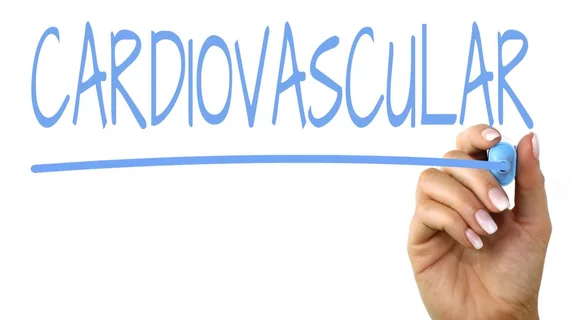Erectile dysfunction a ‘potent predictor’ of CVD risk
Erectile dysfunction (ED) is an independent predictor of cardiovascular disease (CVD), according to a research letter published June 11 in Circulation.
Previous research has linked ED with CVD, but that association could have been attributed to shared risk factors such as obesity, hypertension, diabetes and smoking, pointed out senior study author Michael Blaha, MD, MPH, with Johns Hopkins School of Medicine.
But in following 1,757 men free of CVD at baseline, Blaha and colleagues found that those who reported ED symptoms were twice as likely to experience a cardiovascular event over the following 3.8 years, even after adjusting for those traditional risk factors as well as beta-blocker use and depression.
“Our results reveal that erectile dysfunction is, in and of itself, a potent predictor of cardiovascular risk,” Blaha said in a press release. “Our findings suggest that clinicians should perform further targeted screening in men with erectile dysfunction, regardless of other cardiac risk factors and should consider managing any other risk factors—such as high blood pressure or cholesterol—that much more aggressively.”
Blaha and coauthors studied men from the Multi-Ethnic Study of Atherosclerosis. The mean age of the study population was 69 and—true to its name—the cohort was racially diverse. Forty-two percent of participants were white, while 24.2 percent were black, 10.5 percent were Chinese American and 22.9 percent were Hispanic.
Erectile dysfunction—the inability to achieve or maintain an erection for sexual intercourse—was reported by 45.8 percent of respondents. Some 6.3 percent of those with ED symptoms experienced a CVD event such as cardiac arrest, myocardial infarction or stroke, compared to 2.6 percent of individuals who didn’t report ED.
After adjustment for multiple risk factors and patient characteristics, men with ED were 1.9 times as likely to have an adverse CVD event.
“The onset of ED should prompt men to seek comprehensive cardiovascular risk evaluation from a preventive cardiologist,” Blaha said. “It is incredible how many men avoid the doctor and ignore early signs of cardiovascular disease, but present for the first time with a chief complaint of ED. This is a wonderful opportunity to identify otherwise undetected high-risk cases.”

